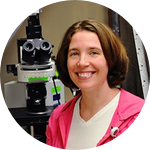Haven't backed any projects yet!
Lab Note 15: Replication
The hallmark of any good study is replication. We felt pretty good about the conversion factor that we derived with our first collection of surgical videos. The correlation between the predicted sc...
Lab Note 14: Transformation
It worked! We calculated a regression equation using crowd score and video length topredict expert score (Predicted Score = constant +a*Video_seconds +b*Crowd_mean). This equation generated a predi...
Lab Note 13: Conversion Factor
Today we are going to talk about another possible way to make the data that we have about resident surgical performance more predictive of expert assessment of surgical skill. We saw that crowds ar...
Lab Note 12: The time factor
This result suggest a few things: it suggests that time (an easily captured measurement) should be explored as a potentially robust indicator of surgical skill, either independently or in combinati...
Lab Note 11: And the crowd goes wild!!
Well, the data are in... and the mean crowd scores (red) ARE correlated with the mean expert scores (blue)! It is pretty clear when you look at the graphic... the higher the expert score the higher...
Lab Note 10: And the Experts Agree!
Congratulations to our expert reviewers who completed their task of each assessing the 50 videos prior to October 13!! Not only were the assessments completed on schedule, but the preliminary analy...
Making Progress
I just wanted to send a quick update to let everyone know where we stand.Video editing: COMPLETE. (Thank you, Tejas!)Video upload to CSATS: COMPLETE. (Grace is on top of everything)Lay rater evalua...
Lab Note 9: How will this project help us link skill with outcomes?
What we really want to know is what a resident surgeon can accomplish in terms of surgical outcomes. Were there complications during or after surgery? How well does a patient see after cataract sur...
Lab Note 8: Why we are Crowd Funding the Crowd Sourcing experiment
Let's talk about bias. We all have bias. Bias is why I am turning to the crowd, not just for assessments, but for funding. This project has been vetted before traditional study sections to procure...
